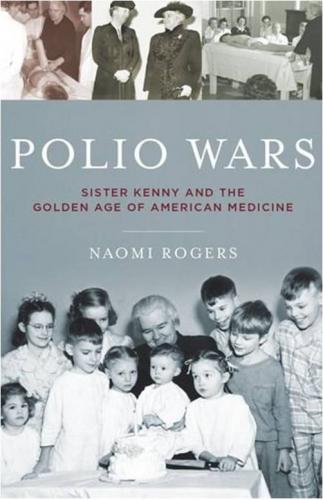
Naomi Rogers has been awarded the Lavinia L. Dock Award for Exemplary Historical Research and Writing for her book Polio Wars: Sister Kenny and the Golden Age of American Medicine (Oxford University Press, 2013).
Polio Wars is the story of Elizabeth Kenny, a nurse who arrived in the US from Australia in 1940 espousing an unorthodox approach to the treatment of polio. Kenny approached the disease as a non-neurological affliction, championing such novel therapies as hot packs and muscle exercises in place of splinting, surgery, and immobilization. Her care embodied a different style of clinical practice, one of optimistic, patient-centered treatments that gave hope to desperate patients and families. During World War II, polio epidemics in the United States were viewed as the country’s “other war at home”: they could be neither predicted nor contained, and paralyzed patients faced disability in a world unfriendly to the disabled. These realities were exacerbated by the medical community’s enforced orthodoxy in treating the disease, treatments that generally consisted of ineffective therapies. The Kenny method, initially dismissed by the US medical establishment, gained overwhelming support over the ensuing decade. By 1952, a Gallup Poll identified Sister Kenny as the most admired woman in America.